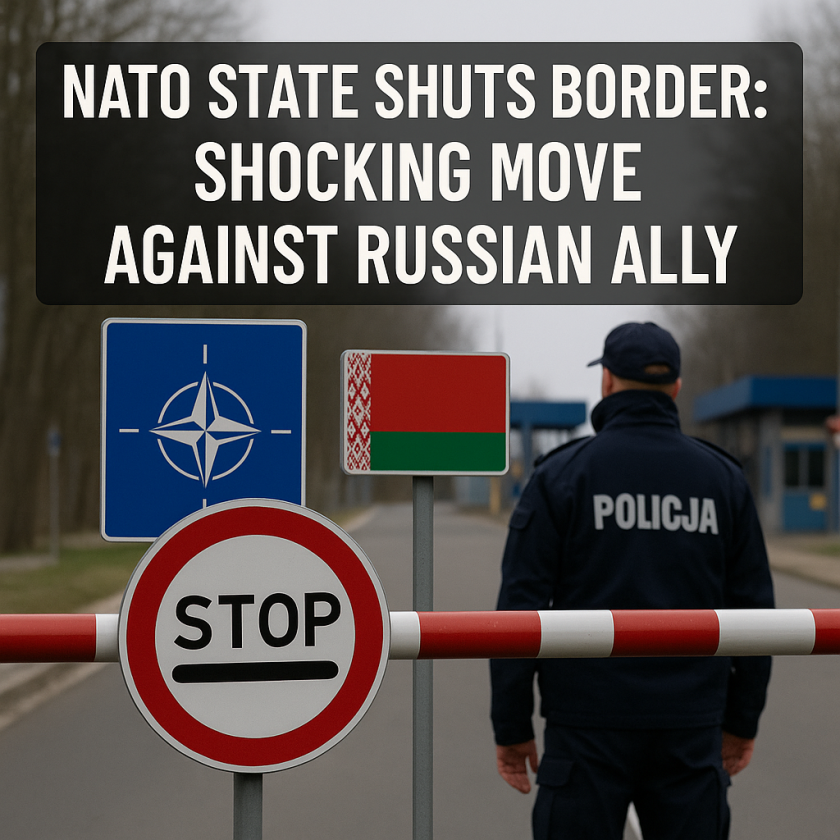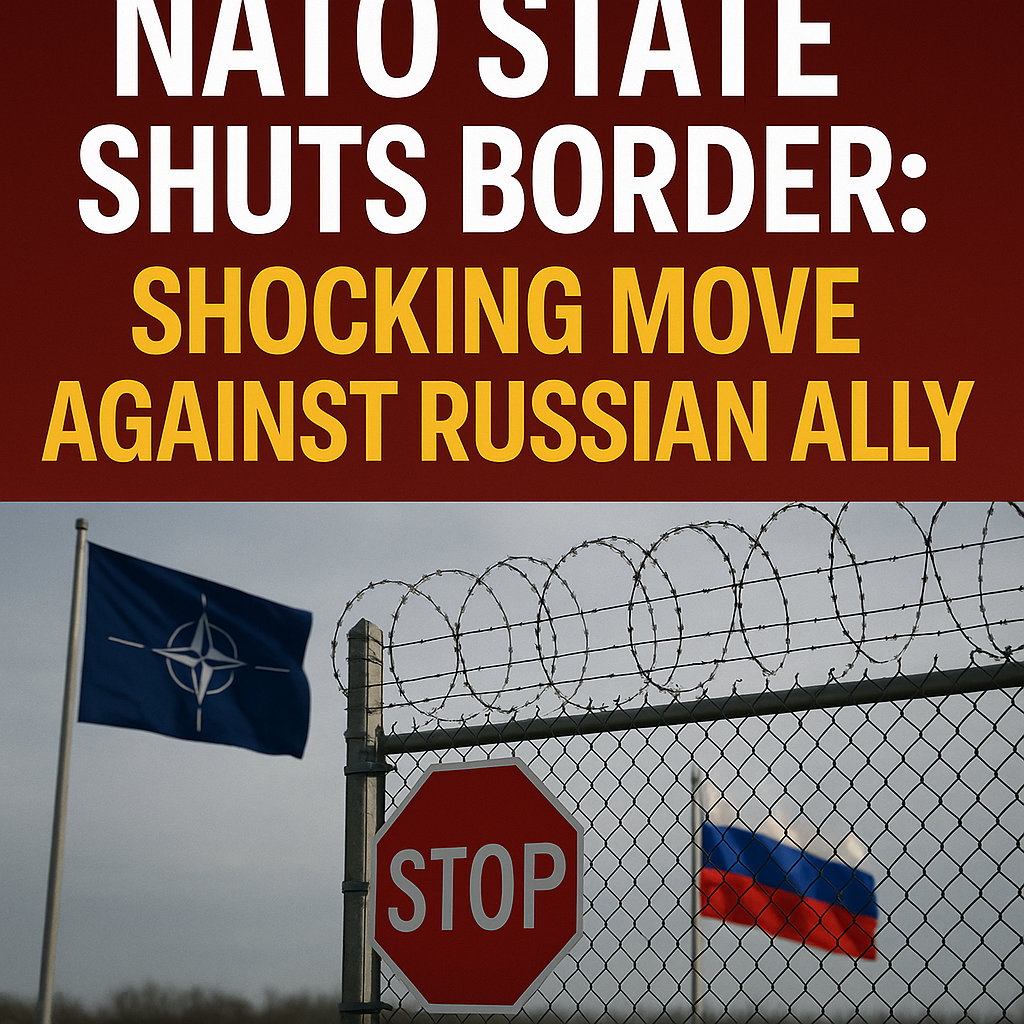NATO State Shuts Border: Shocking Move Against Russian Ally
NATO State Shuts Border: Shocking Move Against Russian Ally
The recent decision by a NATO member state to shut its border is stirring significant geopolitical turmoil, particularly in relation to its interactions with Russia and its ally, Belarus. This development raises questions about regional security, international alliances, and the implications for future relations between NATO countries and their eastern counterparts.
Understanding the Move: Context and Implications

The border closure, implemented by Poland, comes amid increasing tensions with Belarus, which is viewed by many as a Russian ally. According to reports, Polish officials cited security concerns stemming from the ongoing conflict in Ukraine and the influx of migrants allegedly orchestrated by Belarusian authorities. The rationale for this decision is multifaceted, blending national security imperatives with broader geopolitical considerations.
Security Concerns at the Forefront
Reports highlight that Poland is not only responding to migration but also taking a defensive stance against potential destabilizing efforts from its eastern neighbor. Many military analysts warn that Belarus could serve as a staging ground for Russian operations, given the history of military exercises and joint operations involving Russian forces in Belarusian territory.
The Polish interior minister stated that border security is paramount to ensure the integrity of the nation amid what they perceive as hybrid warfare tactics being employed by Belarus. This sentiment echoes across NATO discussions, with the alliance making clear that it remains committed to supporting its member states against external threats.
Divergent Views: NATO’s Response and Regional Reactions
The response from NATO and other regional players is diverse, revealing contrasting viewpoints on the necessity and effectiveness of border closures as a tool for security.
Support From Allies
Substantial support from NATO allies, particularly those in Eastern Europe, underscores a cooperative approach to counter perceived threats from Russia and Belarus. Countries such as Lithuania and Latvia have echoed similar sentiments, reinforcing their own border defenses and calling for increased NATO presence in the region. This solidarity reflects a growing sense of urgency about the challenges posed by Moscow’s actions in Ukraine and beyond.
Criticism and Concerns Over Escalation
Conversely, some analysts warn that shutting borders could exacerbate tensions rather than alleviate them. Critics argue that such actions might inadvertently provoke hostility from Belarus, pushing it closer to Russia and complicating diplomatic relations. Moreover, the long-term implications for regional stability could be detrimental, as isolated states may be more inclined to forge strategic alignments out of necessity.
This dichotomy in perspectives highlights a broader truth: national security strategies are often reactive and shaped by local contexts. There is a delicate balance between ensuring safety and maintaining diplomatic channels, with some nations advocating for a more dialogue-driven approach.
The Role of Migration in Tensions
An important element influencing this situation is the migration crisis stemming from the Middle East and Africa, with Belarus accused of weaponizing migrant flows to pressure the EU and, by extension, NATO nations. Reports suggest that Belarusian President Alexander Lukashenko has used migrants to retaliate against sanctions imposed by Western countries, thus adding another layer to the complexities of regional security.
As Poland and other nations fortify their borders, the humanitarian implications of these closures cannot be ignored. The blocking of migrants seeking asylum raises ethical questions about how NATO countries balance national security with their commitments to human rights.
Conclusion: The Balancing Act Ahead
The closure of Poland’s border in response to Belarusian actions encapsulates the intricacies of modern geopolitics, particularly within the framework of NATO and its eastern neighbors. The move demonstrates a commitment to national security but also risks further isolating Belarus and escalating tensions in an already volatile region.
The situation remains fluid, and officials from both sides will likely continue to engage in dialogue even as military posturing intensifies. While the immediate response by NATO members appears unified, the long-term strategy of balancing deterrence with diplomacy will be crucial to fostering stability in the region.
Ultimately, the unfolding narrative surrounding this border closure speaks to the wider challenges NATO faces in navigating a complex landscape of alliances, enmities, and the ever-present specter of hybrid warfare. As developments unfold, maintaining a balanced viewpoint will be essential for understanding the myriad implications associated with these geopolitical maneuvers.






































